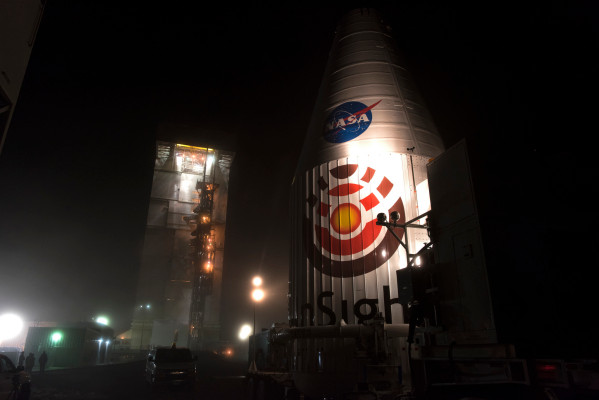
Night owl? Good news — there’s an historic rocket launch early tomorrow morning that you can catch while the rest of the country is sleeping. NASA’s Insight Mars lander is scheduled for takeoff at 4:05 AM Pacific, weather permitting. You can watch it live at the links below.
Insight is launching atop an Atlas V rocket with a Centaur for the orbital stage, operated by United Launch Alliance. After a six-month trip through space, the mission is to discover the secrets lying deep within the Red Planet using sensitive seismographs and a temperature probe that will bore into the surface. There’s also a pair of cubesats hitching a ride to test how tiny spacecraft will perform outside Earth orbit.
It’s historic not just because it’s an awesome Mars lander that will teach us about the formation of our rocky neighbor and Earth itself, but because this is the first time an interplanetary mission has taken off from the west coast of the country. It’s launching from Vandenberg air base, between Santa Barbara and San Luis Obispo (a couple hours north of LA, for those not familiar with Californian geography).
“If you live on the California Central Coast or south to L.A. and San Diego, be sure to get up early on May 5th, because Atlas V is the gold standard in launch vehicles and it can put on a great show,” said Kennedy Space Center launch director Tim Dunn in a NASA news release.
That all depends on the weather, of course. The dreaded marine layer lies heavy on the coast and that means visibility will be extremely low. But as coastal Californians know, waiting for it to go away is a good way to waste a whole day. NASA can’t wait that long — the rocket needs to go off when this side of the planet is facing the right direction, of course. So Range Safety may waive the eyes-on visibility requirement for launch, provided all other telemetry systems are working normally.
Going from launch to orbit will take about 13 minutes, at which time Insight will wait for about an hour, and then a final burn will send it on its way to Mars. The whole process should take about 93 minutes.
So if you’re up tomorrow in the predawn hours, check out the launch either at NASA’s stream or at the YouTube hosted one that should appear here half an hour or so before launch.


